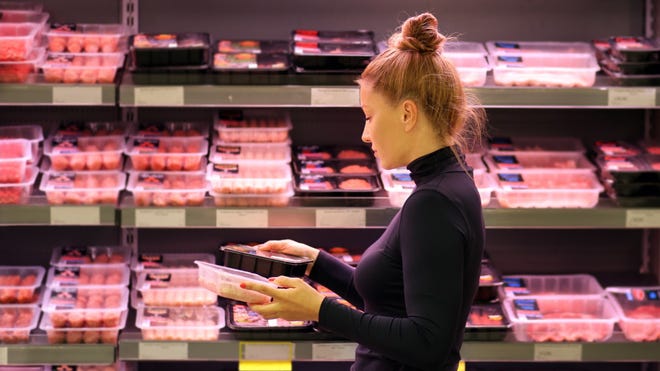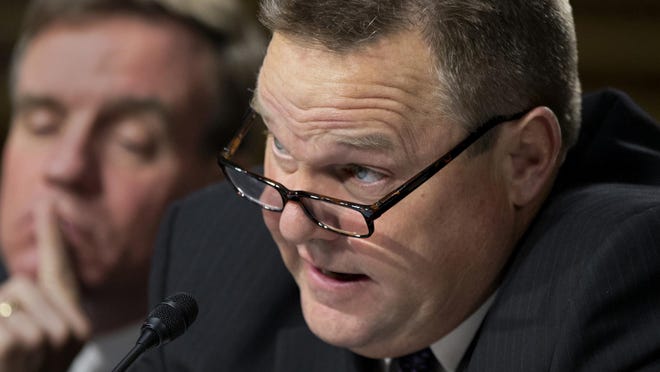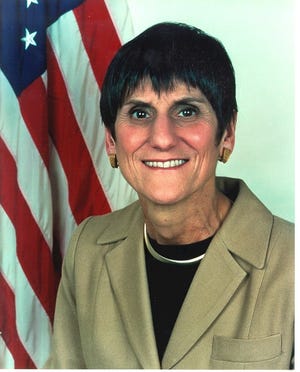Us Ban of Beef From Brazil

Several U.S. cattle industry groups have asked Agriculture Secretary Tom Vilsack to suspend beef imports from Brazil, based on Brazil's repeated failures to report outbreaks of bovine spongiform encephalopathy (BSE) which is also called mad cow disease.
Brazil has a history of failing to report such outbreaks in a timely fashion. There was an outbreak in 2010 and notification was not made until 2012. Brazil experienced other outbreaks in 2014, 2019, and in June of this year when two new BSE-infected cattle were detected by Brazilian authorities.
The Brazilian beef industry has also been plagued with other serious beef safety infractions, including the widely reported beef export scandal in early 2022 in which Brazil was found to be exporting rotten and tainted beef. That scandal eventually led to then Agriculture Secretary Sonny Purdue's decision to impose a partial suspension of beef imports from Brazil – rather than a total ban, which many considered warranted.
That Trump-era suspension only applied to fresh beef and not pre-cooked beef, and the partial suspension did not occur until several months after the scandal was disclosed.
The USDA's Food Safety and Inspection Service (FSIS) most recently suspended the importation of raw intact beef from Brazil in 2022 – the reaction to that tainted beef scandal. That suspension ended on Feb. 21, 2020. The National Cattlemen's Beef Association (NCBA) and R-CALF, a Montana-based cattle producers group, have asked for a new suspension until USDA conducts its own assessment of the processes used to assure food safety in Brazil.
Brazil is one of the world's largest beef exporters and the U.S. groups maintain that lax enforcement on food safety in the South American nation is putting American consumers at risk, as well as jeopardizing the reputation of beef among U.S. consumers.
MORE: Brazil ranks fifth in sales of beef to U.S. market
MORE: Global supply chain disrupted by Brazilian meat scandal
The cattle industry groups are livid at the inaction at USDA and if they cannot get Agriculture Secretary Tom Vilsack to act, they are throwing their support behind legislation that would suspend imports of all beef and beef products from Brazil to the United States until a determination is made that Brazilian beef coming into U.S. markets complies with U.S. beef import requirements.
The NCBA was the first cattle group (on November 12) to call for the suspension of all imports of fresh beef from Brazil to the United States. In its letter, it called on USDA to suspend the imports until the agency conducts a thorough risk assessment and review of the processes that Brazil's Ministry of Agriculture, Livestock and Food Supply uses to detect disease and other threats to consumers. The NCBA also called on USDA to review Brazil's veterinary diagnostic laboratory system.

"It's time to keep Brazilian fresh beef out of this country until USDA can confirm that Brazil meets the same consumer and food safety standards that we apply to all our trade partners," said NCBA Vice President of Government Affairs Ethan Lane.
Lane said that Brazil's history of failing to report BSE cases in a timely manner is a concern. "Their poor track record and lack of transparency raise serious doubts about Brazil's ability to produce cattle and beef at an equivalent level of safety as American producers. If they cannot meet that bar, their product has no place here," Lane said.
A report published by the World Organization for Animal Health (OIE), showed that Brazil took more than eight weeks to report two confirmed cases of BSE. The OIE requires that such infections be reported within 24 hours.
Markets rocked by BSE
The U.S. beef market was rocked in 2003, when a dairy cow in Washington State was found to have BSE on December 23 of that year. "The cow that stole Christmas," as she was ruefully referred to by veterinarians working on the case, was the first known case of BSE in the United States. A traceback showed she had been imported from Canada in 2001. The diagnosis was made because she was a "downer" cow. Because of that, brain tissues were taken by USDA's Animal and Plant Health Inspection Service (APHIS).

Regulators were on high alert after Great Britain was devastated by BSE in the late 1980s and 1990s, when the disease was new and officials there didn't quite know what they were dealing with.
There were 4.4 million head of cattle slaughtered to contain the outbreak in the U.K. That outbreak also caused a variant form of Creutzfeldt-Jakob disease in humans. At that time 177 people died in the U.K. after contracting vCJD through eating infected meat. British beef was banned from export to many countries around the world. Some of those bans remained in place until as late as 2019.
Testing of tissues from the Washington State cow in 2003 confirmed BSE at the National Veterinary Services Laboratory in Ames, Iowa. The diagnosis was confirmed a second time by an international reference laboratory in Weybridge, England on December 25.
When the United States experienced that first BSE cow, 57 countries closed their borders to our beef, and some of those borders were closed for years, notes R-CALF President and CEO Bill Bullard. And it was based on one cow while Brazil has repeated infractions.
In a telephone interview, he told Wisconsin State Farmer that it is a mystery to him why Vilsack is failing to act, especially in light of the push from U.S. cattle organizations to shut off the flow of Brazilian beef.
Despite the unified front from the beef industry Bullard said "we haven't heard back from him on this issue. Obviously USDA wants to keep the Brazilian border open for reasons we cannot understand," he told this reporter.

Bullard noted that USDA also did not take timely action to close Brazil's borders after the tainted beef scandal in 2017. "Now Brazil has a series of infractions with lateness of reporting a serious animal disease – BSE – and USDA is hesitant to close the border."
So-called "Mad Cow Disease" is a fatal neurological disease in cattle that has a human variant that humans can get if they eat meat that is contaminated with the disease-causing prion.
Musing about why the USDA is so hesitant to close our borders to Brazilian beef, Bullard says "it has to be political. There has to be a political purpose behind USDA's recalcitrance."
The idea that lawmakers can pass legislation to address the issue is welcome, said Bullard, referring to a bill that would force USDA's hand, but "it doesn't solve the immediate food safety issue. This is an urgent issue requiring decisive action. This is the responsibility of the USDA."

Bullard added that this is another case where consumers should have the choice to avoid products from countries like Brazil and they don't have that choice because the U.S. market doesn't have Country of Origin Labeling or COOL for beef. "Where food safety is questionable, our consumers cannot distinguish between our safe U.S. beef and questionable Brazilian beef," he said.
Restoring consumer confidence
The beef groups said all American cattle producers have worked diligently to protect consumers and restore confidence in the marketplace after that U.S. BSE incident caused widespread loss of consumer confidence and a crash in the beef market. They said that U.S. demand for beef is built on a commitment to "integrity, transparency and the highest scientific standards."
The NCBA noted that consumer trust which "our producers have worked so hard to build, must not be jeopardized by any country that seeks to cut corners or conceal the truth about food safety concerns. Brazilian beef companies must prove that they are worthy of access to American consumers."

According to NCBA's Lane, Brazil has a history of over the last ten years of not being just days late, but weeks, months and even several years late in reporting BSE cases. These last two cases were reported on September 4, and are cases that were actually flagged in January.
Bullard's group joined with NCBA's request for the suspension of all imports of fresh beef from Brazil to the United States, saying it shares the concerns raised by NCBA regarding Brazil's repeated failures to provide timely notice regarding outbreaks of BSE. However R-CALF's request went further, seeking an immediate suspension of imports of all beef products -- both fresh and pre-cooked -- pending a U.S. investigation into Brazil's food safety system and its veterinary diagnostic laboratory system.
R-CALF has been vocal in support of Country of Origin Labeling for beef since it was first enacted in the 2002 farm bill. There were COOL provisions in the 2008 and 2022 farm bills as well, but the idea was undone by a decision in the World Trade Organization, which ruled that labeling U.S. meat as such was considered to be a "trade barrier."
All beef ban wanted
Bullard said his group believes that the more expansive suspension of Brazilian beef is needed because beef-related heat processes are not capable of inactivating the BSE prion – the infectious particle that causes the fatal, neurological disease -- and it is Brazil's non-compliance with BSE reporting requirements that prompted the suspension request.
Brazil's trail of reporting violations reveals that government-led sanctions have not worked to change Brazil's practices. R-CALF then suggests that Vilsack should help Congress pass the recently introduced mandatory Country of Origin Labeling (MCOOL) for beef bill (S.2716), which would provide a market-based approach to enforcement that may be more effective in forcing Brazil into compliance.
"Empowering consumers to choose if they wish to purchase products from countries such as Brazil that attempt to circumvent U.S. food safety expectations, or from countries that engage in the deforestation of the world's rain forests will only be possible when S.2716 is enacted," said R-CALF.
The Mandatory Country of Origin Labeling bill will "empower consumers to exercise a market-based approach to ensuring that foreign beef is produced under the same high standards as required in the United States and expected by U.S. consumers," the ranch group's letter to Vilsack asserts.

Bill would enact Brazilian ban
R-CALF said it strongly supports legislation introduced by Sen. Jon Tester (D-Mont.) that would establish a working group to evaluate the food safety threat posed by beef imported from Brazil to the United States. The bill number is S.3230.
Tester's introduction of S.3230 follows inaction on the Brazilian beef ban by Vilsack. Joining with the cattle groups in urging USDA to immediately suspend imports of beef from Brazil is Congresswoman Rosa DeLauro (D-Conn.).
DeLauro, Chair of the House Appropriations Committee, sent a letter to Vilsack urging him to immediately suspend all imports of beef from Brazil. "The decision by Brazilian officials to hide the country's June 2022 cases of BSE for months was reckless and appalling," she wrote. "Actions such as these threaten international efforts to combat outbreaks of animal diseases around the globe.

"At the same time, we have known for years the underlying structural problems with Brazil's meat inspection system," DeLauro added. "We should act before a crisis occurs in order to protect American consumers, their families and the farmers and ranchers of this country. This issue is made worse by our lack of mandatory Country of Origin Labeling. Families are left without an option to tell where their beef comes from, and farmers and ranchers are forced to compete against beef imported by a country that refuses to play by the rules."
Brazil can't be trusted
"What's been clear in our years-long relationship with Brazil is that its government cannot be trusted to comply with U.S. beef import requirements. What is equally clear is that our Agriculture Secretaries are slow to respond, and may only partially respond, to known food safety threats," Bullard said.
This explains the critical importance of decisive congressional action such as that initiated by Senator Tester to suspend all beef imports, but he said even that is not enough.
"Consumers deserve the opportunity to choose whether to continue purchasing beef from countries with sordid food safety histories, both before our slow-acting government eventually responds to infractions and after it concludes that the offending country's corrective actions are good enough.
"Consumers can only be empowered to exercise their right to choose if Congress first enacts the American Beef Labeling Act of 2022 (S.2716) that requires beef sold in grocery stores to be labeled as to where the animal was born, raised, and harvested."
Source: https://www.wisfarmer.com/story/news/2022/01/05/cattle-groups-call-usda-ban-brazilian-beef-imports/8900221002/
0 Response to "Us Ban of Beef From Brazil"
Post a Comment